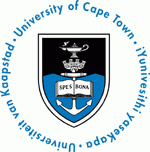
This study on the medical profession and its related education programmes considers the multiple worlds of medical practice in South Africa ten years into democracy, from a number of perspectives.
Many of the goals of South Africa’s new democracy depend on the production of professionals who have not only the knowledge and skills to make our country globally competitive, but also a commitment to working and living here. Despite numerous reforms, the South African health system, ten years into democracy, remains divided: first world private care that ranks with middle income countries internationally at the one end, and at the other extreme, in the rural public sector in particular, conditions that are superior only to the poorest of African countries. Much work has been done to change medical school curricula in line with the primary health-care focus of government policy, and international trends towards problem-based learning. The student profile in medical schools is now not only more representative of the demographics of South Africa, but also reveals a significant increase in female students. Whether these students will stay in the country after graduating, and serve where they are needed most, remains to be seen.
This study on the medical profession and its related education programmes considers the multiple worlds of medical practice in South Africa ten years into democracy, from a number of perspectives. First, it presents the major problem facing government - the skewed distribution of medical doctors across public/private, rural/urban divides - and consider its recent attempts to rectify the imbalances. Secondly, it presents the universities’ responses to the equity and redress demands of government policy: changing profiles of medical students and graduates and new curricula to meet the profile of the ‘basic’ doctor who is willing and able to serve the needs of a transformed South Africa.
Finally, it focuses on two medical schools to explore these issues in greater depth. At UCT, the authors explore the travails of transformation at a long-established medical school and discover some interesting implications in the field of gender. At the University of the Transkei (now Walter Sisulu University), they explore what is arguably the most concerted attempt in the country to produce rural doctors and raise questions about the success of this initiative and the survival of the medical school. The study concludes that there has been progress in the admission of black students to formerly white institutions although Africans are still underrepresented. Gender transformation has been so significant that women students are generally in the majority, but whether the universities are managing to graduate more doctors who are prepared to work in the public and rural service, remains a moot point.
Institution: University of Cape Town
Author: Mignonne Breier, Angelique Wildschut
View resource
